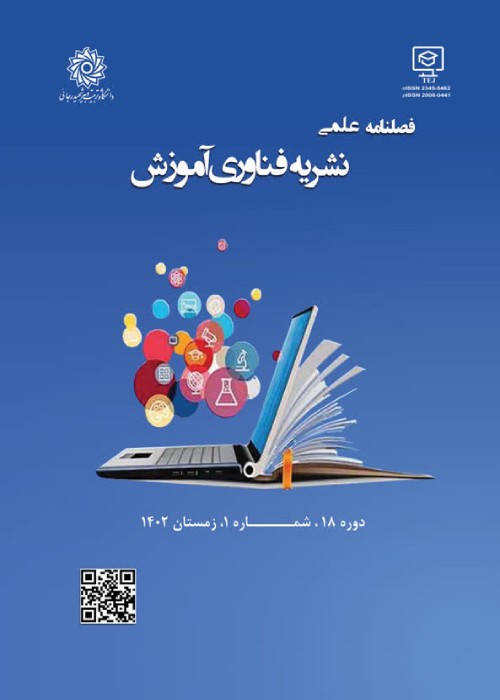Required faculty competencies for teaching in higher education institutes in technology era
Third Mellenium World is a world that is faced with rapid scientific, cultural, and technological change. Increasing access to education services at higher education levels has resulted in admission of students with personal differences to higher education institutes. The change in the higher education context is associated with a change in the roles and responsibilities of faculty members. Therefore, in order to fulfill their duties and take their responsibilities, it is necessary for faculty members to deploy their understanding, knowledge, and skills in different areas and improve them in accordance with the changes that occur in the society and deploy the teaching-learning approaches to take these differences into consideration. This study is aimed at identifying the qualifications required for becoming a faculty member at higher education institutes on the basis of their roles and responsibilities. Materials: This study is a Basic Qualitative research with a pragmatic and epistemological, interpretive / constructivist approach. First, the documents related to the teaching qualifications in higher education were collected. Then, in order to understand the views and experiences of the Iranian universities’ faculty members, semi-structured in-depth interviews with 14 faculty members were conducted. The documents were described in a qualitative Metasynthesis approach in terms of concepts and themes in a deductive manner within the research context and on the basis of a theoretical framework, and, then, they were analyzed along with the concepts and themes identified in the interviews in an interpretive (deductive and inductive) manner and in the last stage, the concepts and themes were inductively integrated and interpreted and line-by-line coding in MAXQDA 10 was used to analyze the documents and interviews.
In this study, 349 semantic units (open codes), 32 categories and 9 themes (competencies) were extracted which are as follows: Competencies related to: futurology (futurism, risk-taking, entreprenuership), professional ethics ( no abuse of powere, observing students’ boundary, attending with readiness, assuming responsibility for educating the community and observing professionalism), personal competencies (personal identity, ethics and personal behavior, being up-to-date, problem-solving ability and thinking skills), interpersonal-social competencies (cultural identity, effective communication skills, role modeling, patnership and cooperation), organizational competencies (organizational identity, familiarity with objectives and missions of the organization, familiarity with roles including offering services competencies, research competenceies, education competencies, management competencies (self-management, leadership, occupational management, resource management, teaching-learning management, preparation and learning environment management, research management, education-research guidance, planning and organization), practical competencies ( the ability to connect science and practice, effectiveness), writing competencies (knowledge of language and academic writing), and competencies related to acceptability in the communities of practice (scientific community approval.
Analysis of the findings showed differences between competencies identified among faculty members in Iran and outside Iran. 10 out of 14 interviewees pointed out abuse of others’ scientific abilities and abuse of power by some faculty members in their own professional condition which probably indicates the need to emphasize this principle in the Iranian higher education society whereas foreign documents mostly emphasized technology. Not mentioning this issue in the interviews by most professors may indicate that some faculty members in Iran are not still amiliar with this concept. The competencies identified in this research can be used to make informed decisions and to determine the required content for the development programs of the candidates intending to cooperate with the higher education institutes as faculty member.
- حق عضویت دریافتی صرف حمایت از نشریات عضو و نگهداری، تکمیل و توسعه مگیران میشود.
- پرداخت حق اشتراک و دانلود مقالات اجازه بازنشر آن در سایر رسانههای چاپی و دیجیتال را به کاربر نمیدهد.



